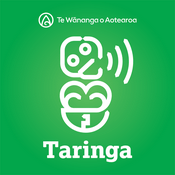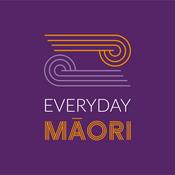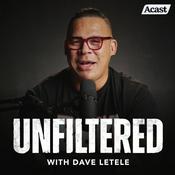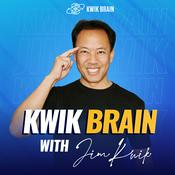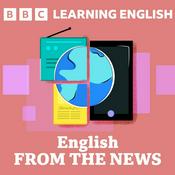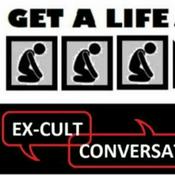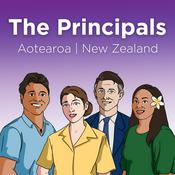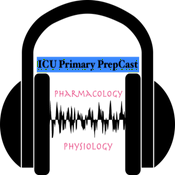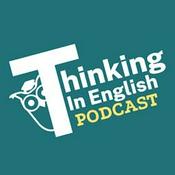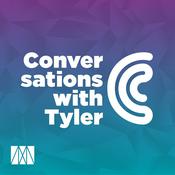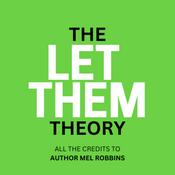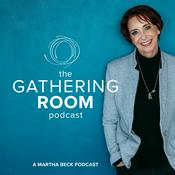74 episodes
MTSS: Ensuring Structured Literacy Across All Tiers and the Importance of Oral Language
19/2/2026 | 43 mins.During this insightful episode of EDVIEW360, literacy expert Dr. Antonio Fierro joins us to unpack the critical role of Multi-Tiered System of Supports (MTSS) frameworks in ensuring explicit, Structured Literacy instruction reaches every learner. Dr. Fierro provides a clear, operational definition of language and explains the importance of embedding oracy across all language systems and across all tiers of instruction. His perspective highlights why collaboration between language and literacy is not optional—it is foundational to building equitable systems that serve all students.
Listeners will gain a deeper understanding of how Structured Literacy can be implemented with fidelity across Tier 1, Tier 2, and Tier 3 instruction, and why oracy, when intentionally embedded, is foundational to reading proficiency. With a special emphasis on English learners, Dr. Fierro challenges educators to rethink how language and literacy intersect, and how intentional, evidence-based practices can transform outcomes for diverse classrooms.
What You’ll Learn
How a clear, operational definition of language strengthens MTSS by promoting coherence and consistency across Tier 1, Tier 2, and Tier 3 instruction
Why oracy must be intentionally embedded across language systems and instructional tiers, rather than treated as a standalone or developmental component
How Structured Literacy instruction, when aligned with oracy, better supports reading proficiency—particularly for English learners
Practical ways educators can foster meaningful collaboration between language and literacy to improve outcomes for all students- In this powerful episode, two of the most respected voices in literacy education—Dr. Louisa Moats and Dr. Tim Odegard—come together to discuss the urgent need for systemic change in how reading is taught, understood, and supported across the U.S. Drawing from decades of research, policy work, and classroom experience, they explore the persistent gaps between what science tells us about reading and what many educators are still expected to implement. Their conversation is candid, evidence-based, and deeply rooted in a shared commitment to literacy as a civil right.
Dr. Moats reflects on the evolution of her work, including the impact of her seminal paper “Teaching Reading Is Rocket Science,” and the barriers that continue to prevent widespread adoption of structured literacy. Dr. Odegard brings a complementary perspective from his leadership at the Tennessee Center for the Study and Treatment of Dyslexia, highlighting the importance of teacher preparation, data transparency, and the moral imperative to serve all learners—including those with dyslexia. Together, they challenge assumptions, clarify misconceptions, and call for courageous leadership at every level of education.
Listeners will walk away with a renewed understanding of what it means to teach reading well, and a renewed understanding of what is necessary to capitalize on the lessons of reading science.. This episode is essential for educators, administrators, policymakers, and advocates who want to move beyond buzzwords and toward meaningful, measurable change.
What Dr. Moats and Dr. Odegard will discuss:
Why “Teaching Reading Is Rocket Science” remains relevant today
Priorities for improving implementation of evidence-aligned instruction
Why higher education holds the key to sustaining literacy reform and preparing future teacher educators
What the national landscape of dyslexia laws reveals about progress—and what’s still missing in impact research
Why current policies overemphasize foundational print skills while neglecting morphological and etymological depth in spelling and word study
How oral language and comprehension continue to be overlooked in screening, curriculum adoption, and teacher preparation
What Kansas and Ohio’s systemic literacy blueprints teach us about building coherent, statewide literacy systems Intensive Intervention for Tier 2 & 3: Success for Multilinguals and all Students Who Struggle
18/12/2025 | 27 mins.Join this fascinating discussion about intensive intervention and how educators can best help students who struggle with literacy, including English learners. Our guest Dr. Elsa Cárdenas-Hagan will share inspiring and useful insights about the topic. As Cárdenas-Hagan says, “Literacy is a human right, and all students, including those who are linguistically diverse, should have access to Structured Literacy.” Our discussion about this instructional approach will illustrate how it is the bridge to equity, because it includes the foundational skills of reading and writing in addition to the development of oral language and comprehension in an explicit and systematic manner.
This lively discussion with Dr. Cárdenas-Hagan will explore: How students who struggle with learning to read need extended opportunities for learning and practice; Ways educators can appropriately intervene at Tier 2 and Tier 3; How multilingual learners benefit from the use of cross-linguistic features within this instructional approach.
Listeners will learn:
Adjustments all teachers can make for ELLs
How to apply research to practice
How to collaborate for better results and better outcomes
Why more interdisciplinary work is needed in intervention- Join us for this insightful and inspiring discussion with a true literacy hero Margaret Goldberg, co-founder of The Right to Read Project. During this podcast, we’ll talk with Goldberg about the next step in the science of reading movement: Educators moving from research consumers to active research participants. While there’s been progress bringing research awareness to classrooms, we now face a moment where the future of reading science depends on practitioner involvement.
This episode examines how educators have moved from implementing prescribed practices to actively seeking evidence-based approaches, and why this momentum can’t stagnate. With uncertain federal support for education research, we must bridge the “last mile” between research and practice—the phase that matters most to students and teachers.
Drawing from personal experiences, this episode reveals what it means to move from research consumer to research contributor, including the moments that change how educators view and engage with scientific evidence. We’ll discuss research-to-practice partnerships and how thinking like a scientist can change classroom implementation.
Listeners will learn:
Where the science of reading movement stands today
Why this isn’t another pendulum swing in education
The importance of bridging the “last mile” between research and practice
What it feels like to move from research consumer to active participant
Practical steps for joining research-to-practice partnerships
How to approach classroom implementation with a scientific mindset
Why practitioner involvement is essential for sustaining progress
Strategies for participating in science
Essential listening for educators, administrators, and literacy advocates ready to help shape the future of reading instruction and ensure research continues to benefit students in classrooms. - The “science of reading” often gets reduced to “phonics,” but there’s a lot of science that relates to reading comprehension as well.
If we look at typical comprehension instruction through the lens of cognitive science, it becomes clear that we’ve unintentionally made reading and writing much harder than they need to be by separating them from each other and from content-area instruction.
But cognitive science also tells us that a content-rich curriculum combined with explicit, manageable writing instruction can provide all the benefits of science-informed instruction and more. If we break down the artificial walls separating reading, writing, and learning, we can enable all students to reach their full potential.
Listeners will learn:
Why we need to do more than “fix phonics” if we want all students to become fully literate
How we’ve been making reading and writing harder than they need to be
Why it’s not possible to apply principles grounded in cognitive science to typical comprehension instruction
How a content-rich curriculum combined with explicit writing instruction can provide all the benefits of science-informed instruction—and more
More Education podcasts
Trending Education podcasts
About EDVIEW360
Hosted by Pam Austin, these discussions will feature dialogues with experienced educators, inspiring thought leaders, social media influencers, and leading education innovators.
Podcast websiteListen to EDVIEW360, The Mel Robbins Podcast and many other podcasts from around the world with the radio.net app

Get the free radio.net app
- Stations and podcasts to bookmark
- Stream via Wi-Fi or Bluetooth
- Supports Carplay & Android Auto
- Many other app features
Get the free radio.net app
- Stations and podcasts to bookmark
- Stream via Wi-Fi or Bluetooth
- Supports Carplay & Android Auto
- Many other app features


EDVIEW360
Scan code,
download the app,
start listening.
download the app,
start listening.



